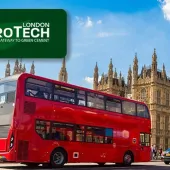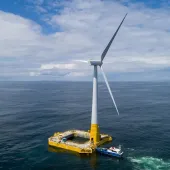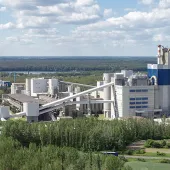Pan-United boost decarbonization in Singapore
Company supplying 360,000 cubic metres of CO2 mineralized concrete for Tuas Port
PAN-United Corporation Ltd are helping to drive sustainable change in Singapore’s built environment with the use of 360,000 cubic metres of carbon dioxide (CO2) mineralized concrete, coupled with low-clinker green cement, over a two-and-and-a-half-year period for Tuas Port. This specialized low-carbon concrete is being used in the construction of the berths and stacking yards at the Phase One container berth project by PSA Corporation Ltd.
Upon completion in early 2024, Tuas Port Phase One will effectively become a man-made carbon sink that prevents the emission of more than 113.8 million kilograms of CO2 from entering the atmosphere, equivalent to planting 1.9 million trees or removing 24,500 cars from the road. When fully completed in the 2040s, Tuas Port will be the world’s largest fully automated port capable of handling 65 million TEUs (20ft equivalent units) annually.
Ms May Ng, chief executive officer of Pan-United, said: ‘We are delighted at PSA’s commitment to the use of our CO2 mineralized concrete for their Tuas Port Phase One project. This will contribute to PSA’s efforts to achieve net-zero carbon emissions by 2050. We will continue to champion sustainability in Singapore and globally, and work alongside fellow industry leaders in our journey to reach new frontiers in decarbonizing Singapore’s built environment.’
Unlike operational carbon emitted from buildings in use, embodied carbon is emitted throughout the construction process before a building is completed, from the manufacture of building materials through to building work on site. This fact makes it possible, during the design stage, to choose building materials and methods that can lower embodied carbon. Once a building is operational, carbon emissions can only be reduced from energy used in lighting, power, air-conditioning etc.
Ms Ng added: ‘So far, greening initiatives have focused largely on reducing operational carbon after the building is completed. Yet the best results can be achieved as early as the design stage if builders opt for low-carbon materials such as CO2 mineralized concrete, to incur the lowest possible embodied carbon footprint for a building even before it comes in use.’
The production of CO2 mineralized concrete is a carbon capture and utilization (CCU) technology that permanently embeds industrial waste CO2 as a mineral in concrete, making it a carbon sink for embodied carbon emissions. Pan-United’s CO2 mineralized concrete is the first and only such concrete to be inducted into the Singapore Green Building Council’s new Ready-Mix Concrete (Carbon Capture & Utilization) category.










